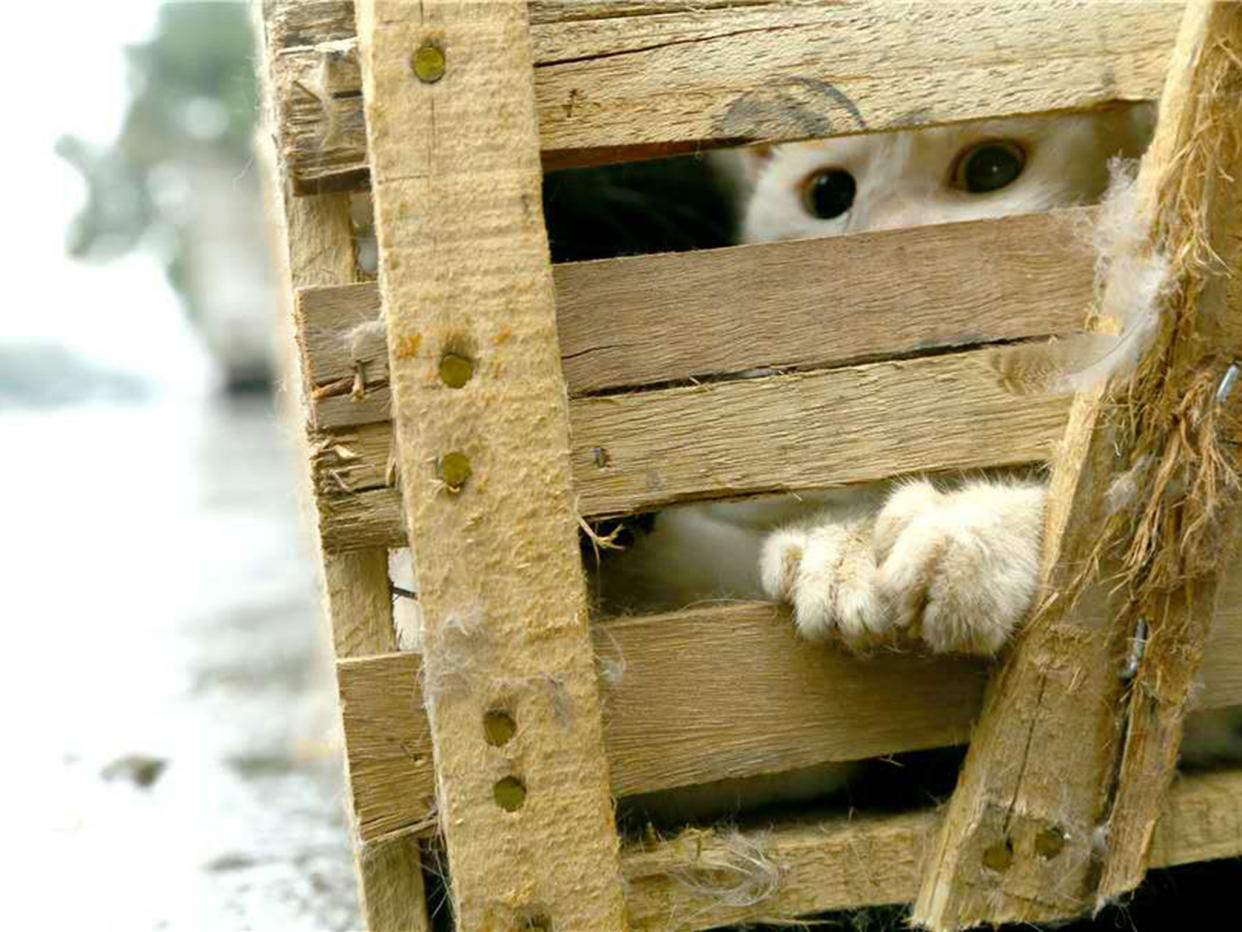The faux fur you bought in the UK could actually be real fur – this is what you need to know

On Fur Free Friday this year there is a lot to celebrate – namely the game changing news that Gucci will be fur-free from 2018. The fashion giant declared that animal fur in fashion is “not modern”. This is another victory to chalk up on the ever-growing list of retailers and designers who’ve decided that fur has had its day. Polls are showing that the vast majority of Brits are against fur and, just this week, famous faces such as Ricky Gervais, Lucy and Tiffany Watson have spoken out against fur. We can also celebrate that it’s now 15 years since the last fur farm demolished its cages in the UK, after this cruel business was banned on ethical grounds.
But we shouldn’t be complacent. Since banning fur farming here, the UK has imported at least £650m worth of fur. The majority of this fur is from farms overseas where the animal suffering is just as bad, if not worse, than the cruelty we deemed unacceptable in this country. It makes our government’s claim of having “some of the best animal welfare standards in the world’ ring rather hollow when it transpires that, in the case of the fur trade, we’ve simply outsourced our animal cruelty to countries like China, Poland and Canada.
And it gets worse. Humane Society International/UK has found a worrying new trend. Not only is cruel fur being imported and sold in the UK, but a significant amount of it is being mis-sold as faux fur. HSI’s investigation with Sky News earlier this year left many British shoppers horrified, revealing that trusted retailers such as ASOS and House of Fraser had inadvertently sold real animal fur labelled as faux fur.
Well known retailer Missguided was as horrified as its customers when we told them that, according to our lab test results, a pair of their shoes contained cat fur.
It is easy to see where the confusion happens because fur is no longer just loud-and-proud full length mink coats, or fox scarves with legs still attached. Fur in Britain today is more deceptive – dyed bright colours, turned into cute pompoms or as trim on hoods or shoes. Often sold for under £10, real fur is sneaking into accessories almost unnoticed. Compounded by the fact that there is no legal requirement to label animal fur in all products, this leaves both consumers and retailers confused.
Animal fur can be produced and sold so cheaply, often more cheaply than faux fur, because the vast majority of imported fur comes from animals who have spent their entire lives on fur farms. On these farms animals like foxes, raccoon dogs and minks are kept in tiny wire cages, physically and mentally deprived, and then crudely killed (gassing and electrocution are most common, to avoid damaging the fur). Wild animals such as coyotes fair no better – they are caught in agonising traps for hours or even days before being shot.
So, how do we extricate ourselves from these horrors? Brexit could be a make-or-break time for animal welfare in the UK and we are determined to secure the best deal for animals as we leave the EU.
Despite a shaky start last week with 313 MPs rejecting an amendment to recognise animal sentience in the EU Withdrawal Bill, Secretary of State for Environment Michael Gove has since countered criticisms by stating his ambition “to make the United Kingdom a world leader in the care and protection of animals.” Obviously this will mean bringing into UK law current EU bans on imports of fur from domestic cats, dogs and commercial seal hunts, but polls commissioned by HSI show that the vast majority of people don’t believe any fur should be bought and sold here, regardless of which animal it used to belong to. Our Fur Free Britain campaign is gathering support to urge the Government to extend existing fur import bans to include all species. With no domestic fur production, and with the vast majority of the public morally opposed to the fur trade, we believe this should be achievable under World Trade Organisation rules.
Until that time, we all – campaigners, shoppers, retailers, and the Government – have a job to do in turning back the tide of cheap mislabelled fur that has made a back-door comeback to British highstreets and websites. Aspiring fur-free shoppers and retailers must be extra vigilant to ensure that the fake fur they’re selling or buying really is fake, and HSI offers a range of materials and training to help do that, including a recent video starring Lucy and Tiffany Watson. We need government to bring in a law requiring that all animal fur is clearly labelled, allowing ethical shoppers and retailers to avoid it, and give them confidence in buying quality fake fur. And as campaigners we will keep making sure that the hundreds of millions of animals suffering and dying on fur farms are not left out of sight and out of mind.
This year’s Fur Free Friday should mark the beginning of the end for the fur trade in the UK, sending a strong message to fur producing nations that there’s no demand for their cruel industries. Let’s live up to our reputation as a nation of animal lovers and leave fur where it belongs – on animals.
Claire Bass is the UK Director of the Humane Society UK

 Yahoo News
Yahoo News 
